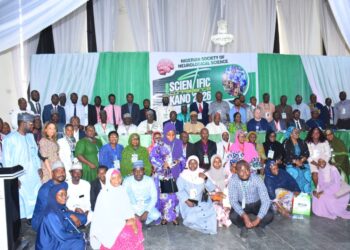Tinubu reduces 263 MDAs to 161 as FEC adopts Oronsaye’s report
The Federal Executive Council (FEC), on Monday, approved the adoption of the Orosanye Report, aimed at the reduction of cost of governance, for implementation.
Minister of Information and National Orientation, Mohammed Idris, disclosed this while briefing State House correspondents at the end of the FEC meeting, presided over by President Bola Tinubu, at the Council Chamber, Presidential Villa, Abuja.
The minister explained that with the adoption of the report, it means that some agencies, commissions and departments of government have been scrapped, some merged, some subsumed under some others and others moved under new ministries where they are supposed to perform better.
READ ALSO: Group says Tinubu’s Economic Advisory Committee filled by anti-people capitalists
“In a very bold move today, this administration, under the leadership of President Bola Ahmed Tinubu, consistent again with his courage to take very far-reaching decisions in the interest of Nigerians, has taken a decision to implement the so called Orosanye Report.
“Now, what that means is that a number of agencies, commissions, and some departments have actually been scrapped, some have been merged, while others have been subsumed. Others, of course, have also been moved from some ministries to others where government feels they will operate better.
“Like I said, this is a very far-reaching decision. It is aimed, one, to fine-tune or to restructure government operations as a whole. Secondly, it’s in line also with decision of President Bola Ahmed Tinubu to reduce the cost of governance”, he said.
READ ALSO: Full text of President Tinubu’s 2024 New Year address
He, however, explained that the adoption of the report did not mean people working in the affected agencies and departments will lose their jobs.
According to the report, the Federal Radio Corporation of Nigeria, FRCN, has been merged with Voice of Nigeria.
Facts about Orosanye Report
The Orosanye Report, officially known as the Presidential Committee on the Rationalization and Restructuring of Federal Government Parastatals, Commissions, and Agencies, was a report commissioned by the Nigerian government in 2011. The aim of the report was to streamline and optimize the operations of various government agencies to reduce redundancy, cut costs, and improve efficiency in service delivery.
Background
The report was named after the former Head of Service of the Federation, Mr. Stephen Oronsaye, who chaired the committee responsible for its compilation. The initiative was part of the government’s efforts to reform the public sector and make it more effective and responsive to the needs of the Nigerian people.
Reccommendations of the Orosanye Report
The Orosanye Report made several recommendations regarding the restructuring and rationalization of government agencies. Some of the key recommendations included:
- Merger of Agencies: The report suggested merging certain agencies with overlapping functions to eliminate duplication and improve coordination.
- Abolition of Agencies: It recommended abolishing some agencies that were deemed redundant or no longer necessary.
- Privatization: The report proposed privatizing some government-owned enterprises to enhance their efficiency and reduce the burden on public funds.
- Strengthening Oversight: It emphasized the need for stronger oversight mechanisms to ensure accountability and transparency in the operations of government agencies.
Implementation of the Orosanye Report
Following the submission of the report to the government, there were mixed reactions to its recommendations. While some stakeholders supported the idea of streamlining government agencies for better efficiency, others raised concerns about potential job losses and disruptions in service delivery.
READ ALSO: Crying more than the bereaved, By Bolaji Adebiyi
The Nigerian government initiated some reforms based on the Orosanye Report, including merging certain agencies and downsizing others. However, full implementation of all the recommendations has been a gradual process, with challenges encountered along the way.
The Orosanye Report remains a significant document in Nigeria’s public sector reform efforts. Its recommendations continue to influence decision-making regarding government agencies and their operations, aiming to create a leaner, more effective public sector.






























